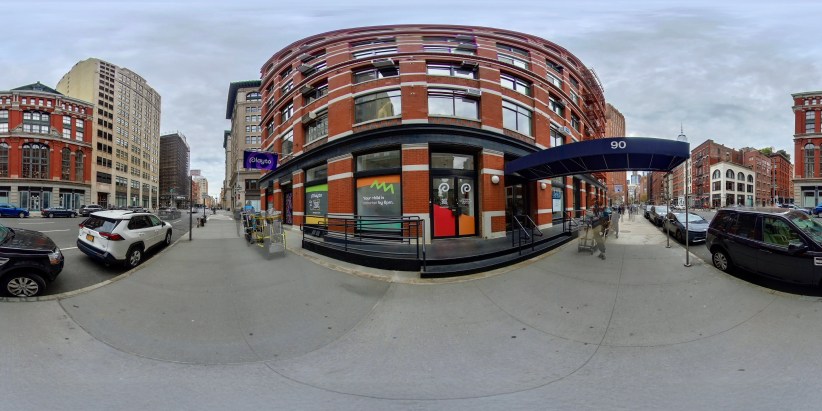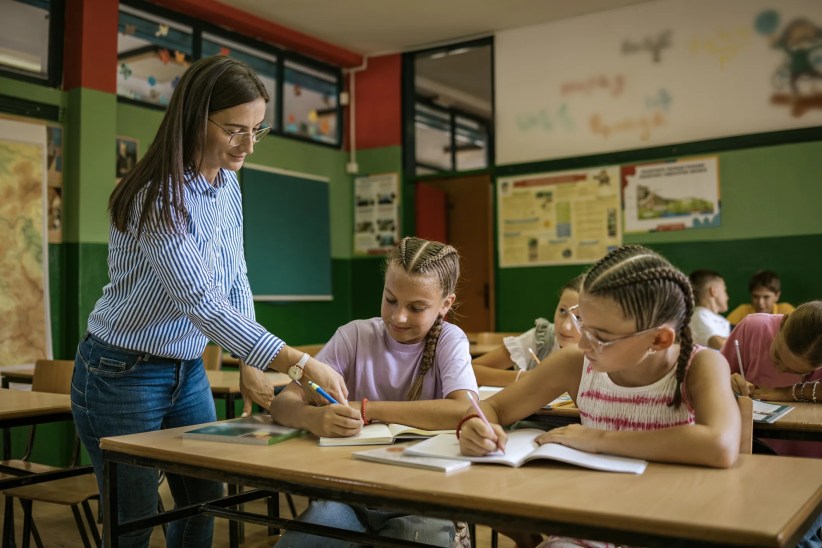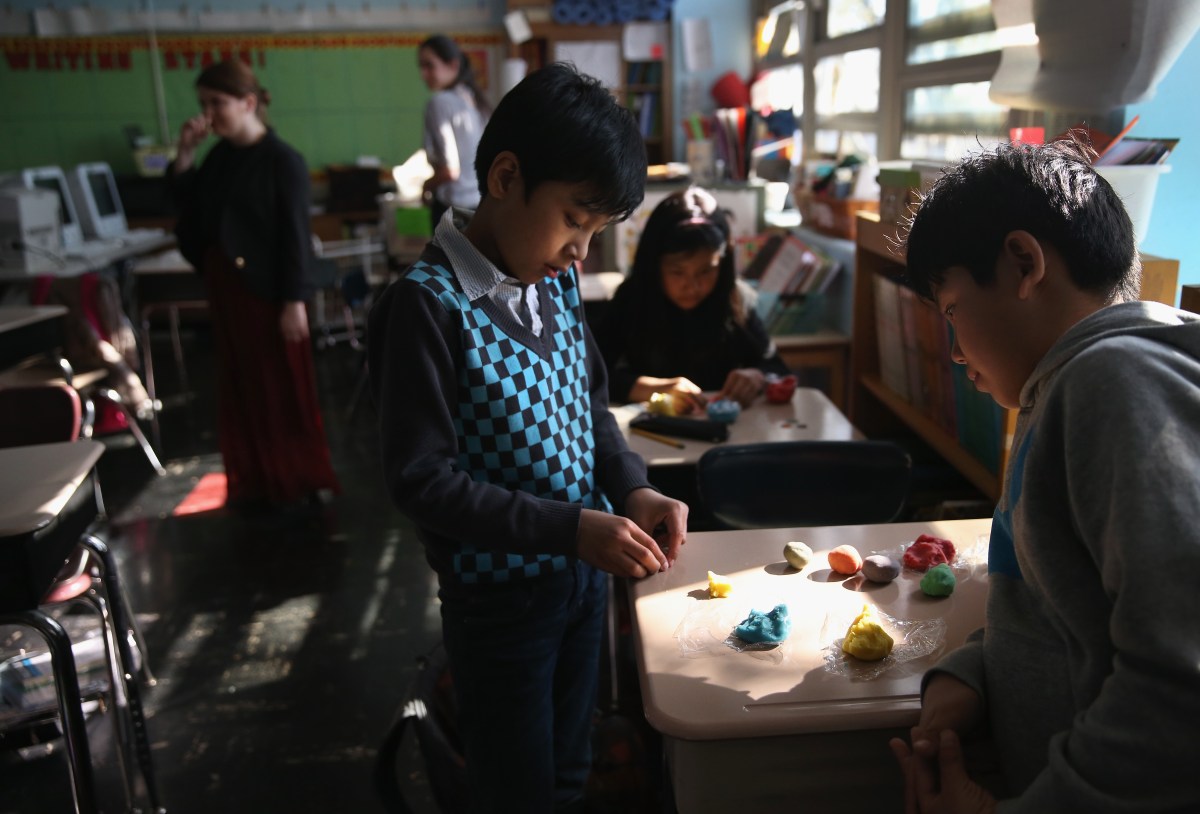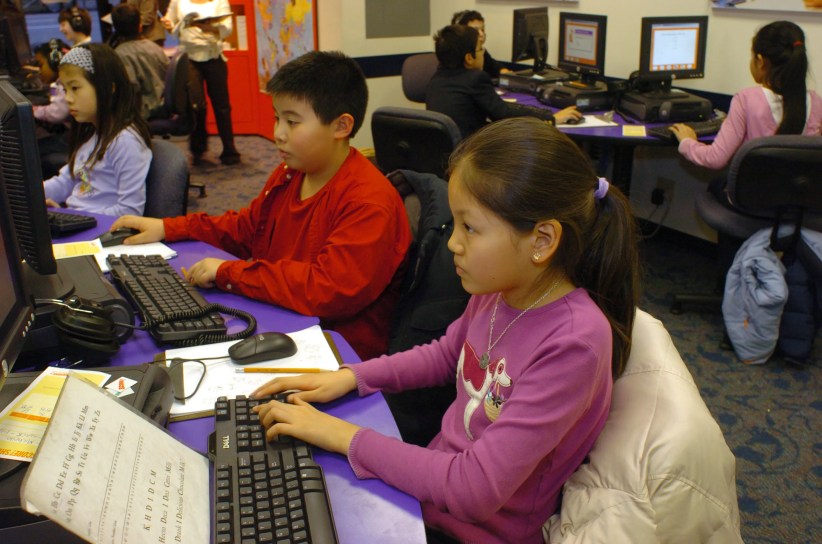The benefits of early childhood education are numerous and can provide great building blocks for a little one’s academic success as they progress from preschool (note: We use “preschool” and “nursery school” interchangeably to refer to early childhood education programs) to elementary school and beyond. So it’s no wonder that the nursery school admissions process is a perennial hot topic among NYC parents.
For parents navigating the waters of the nursery school admissions process for the first time, we turned to admissions directors and heads of school at a selection of top local nursery schools and independent schools offering admission at the nursery (or pre-K) level for their advice on understanding different educational philosophies, doing thorough research to determine the schools you want to apply to, and preparing your young child for the “interview” (in reality, it’s usually a structured play session) portion of the application process.
Plus, click here for our selective guide to the city’s best preschools (and on-going schools with nursery programs), broken down conveniently by neighborhood!
Understanding Educational Philosophies
“Research the pedagogical philosophy of the school. If it’s a Montessori school, read up on Montessori. If it’s Waldorf or Reggio, do the same.” –Nour M. Goda, Director of Admissions & Communications, Morningside Montessori School
“In early childhood education, many classrooms and philosophies may look similar. Play should be an essential component of any early childhood setting. Rooms are typically staffed with dedicated early childhood professionals who are there to guide and scaffold your child’s learning experience. When visiting classrooms, it is important to see if the style of the school and program is one that feels right for your child.” –Ashley Warren, Director of Admissions, Montclare Children’s School
“Different schools have different views on the purpose and proper methods of education. Sometimes there’s an explicit, written view. Sometimes a school is driven more by tradition or inertia or a shared gut sense of what works, but there’s still usually an implicit view. And it is the single biggest determinant of everything else.” –Matt Bateman, Director of Research, Polis Montessori World School
“[Educational philosophy] is an important part of finding a school which is a good fit, but to truly understand the philosophy of a school, it is worth visiting and talking with staff and the leadership, as sometimes the philosophy statement or mission may not give a family enough information and context to make an informed decision for their family.” –Jason Morrow, Headmaster, The British International School of New York
“[Educational philosophy] should be one of top three factors that families need to assess what is a good match for them. For example, if you believe that fostering your child’s autonomy and creativity is important, then picking a school that reflects only teacher-led activities will be frustrating for you and your child.” –Michael Luft, Preschool Director, 14th Street Y
[gravityform id=”18″ title=”false” description=”false” ajax=”true”]
Doing Your Reserach
“Parents in New York City have many options when it comes to schooling. In addition to finding a school that aligns with your educational philosophy and is conveniently located…you want to find a place that feels like home. Your child will be spending many hours of their day throughout their early years in nursery school—the school you choose should be warm and welcoming: A place where both you and your child feel safe and secure. These early years are rewarding and challenging at the same time. It is important to look for a school where teachers, staff, and families may become a part of your ‘village.’ The place where your child makes first friends is extremely significant.” –Ashley Warren, Director of Admissions, Montclare Children’s School
“At the preschool level, it is parents who have anxiety, not children. Parents should just do their research on the process and schools in which they’re interested. There are plenty of great schools available for the children in our city. You will find one!” –Nour M. Goda, Director of Admissions & Communications, Morningside Montessori School
“This will be a time-consuming and thought-provoking process. Being organized and doing research before beginning the process will help. Parents should already have an idea of what they want for their family’s educational life. As with anything else, you have to make time, do in-depth research, weigh options, and choose carefully. It is helpful to create a spreadsheet that includes the programs that are important for your family.” –Carrie Berger Rosenthal, Jessica Anub, and Candace La Douceur, Directors of Admissions, Twin Parks Montessori Schools
“It is important to keep in mind that [when they are] 3-4 years old, you are not expected to know who your child is going to be at 13. In addition, when choosing a school for your 3-year-old, the community life for the parents is just as important. With that in mind, there are a few factors that you will want to consider before making a school choice including the type of community that you would like to be a part of (artsy, progressive, K-12, or a school focused on preschool and elementary), the school’s mission and philosophy (traditional schools, Montessori schools, or Waldorf schools), the size of the school, and the location of the school.” –Marielle Lopez, Director of Admissions, Metropolitan Montessori School
“Do your homework carefully and pick and choose only those schools that you are really interested in and that are a good fit for your child and also your family. We advise parents to look carefully at the mission and vision of the school. Get a feel for the philosophy of the school, its size, the programs offered, the balance of academics, arts, and other activities, and also community life.” –Martine Lala, Director of Admissions, Lycée Français de New York
Prepping For Your Child’s Interview
“Nursery to Kindergarten applicants [can expect to] attend a child play session in small groups and these are fun, lively, and memorable. Time is spent looking at reading and writing and number recognition and skills from Kindergarten. However, children are not expected to be groomed for these sessions—we look for natural conversation, kindness, and teamwork and a good sense of humor.” –Kate Bailey, Head of School, Wetherby-Pembridge School
“Young children do not have an accurate sense of time, so the younger the child, the closer to the time you should tell them about the meeting. Find out as accurately as you can what to expect (length, topics, tasks) so your child is not surprised. Try to phrase it without pressure (“We’re visiting to see if it seems like a good fit for you; different schools are right for different children”) but it’s also reasonable to share expectations—they like to meet students to ensure they are polite, ready to work with others, enjoy learning, etc.” –Matt Bateman, Director of Research, Polis Montessori World School
“Find out ahead of time what will be involved—will the child be required to separate from you? Will there be other children present? Encourage your child to be themselves; visit school ahead of time with child; and communicate calmness and confidence to your child (save any worries for other adults, not your child).” –Michael Luft, Preschool Director, 14th Street Y
“If children are feeling anxiety about the admission process, per se, that is probably because the parents have somehow transmitted their own anxiety to the student. So, the best thing a parent can do is refrain from telling a child how important an interview is or coaching a child about what responses should be given to certain questions. These things have a tendency to make a child feel that he or she is on stage and, therefore, more worried about messing up the lines than showing the school who he or she really is.” –M.P. Harrington, Headmaster, Saint Albans School
“Let the children be themselves, be well-rested, spontaneous, and light. Let them know they’re going to meet new people that day, other parents and adults, but do encourage them to have fun. If parents are stressed, they will pass that onto their children. Keep it simple. Have them come in comfortable clothes and ready to play.” –Martine Lala, Director of Admissions, Lycée Français de New York























